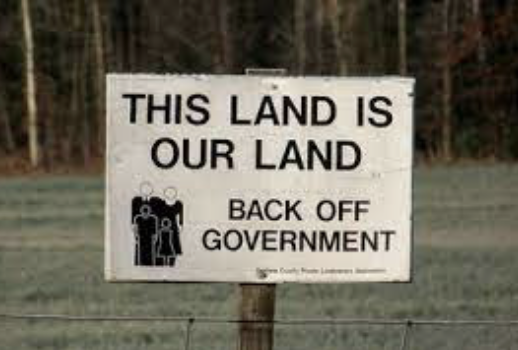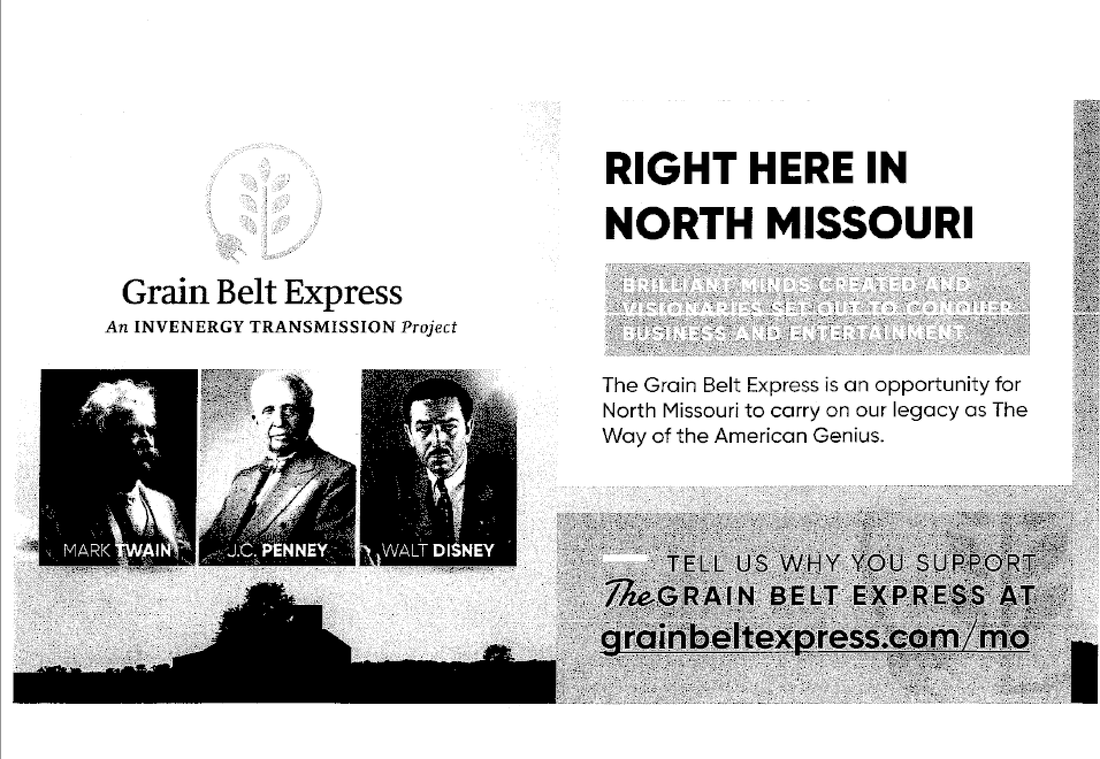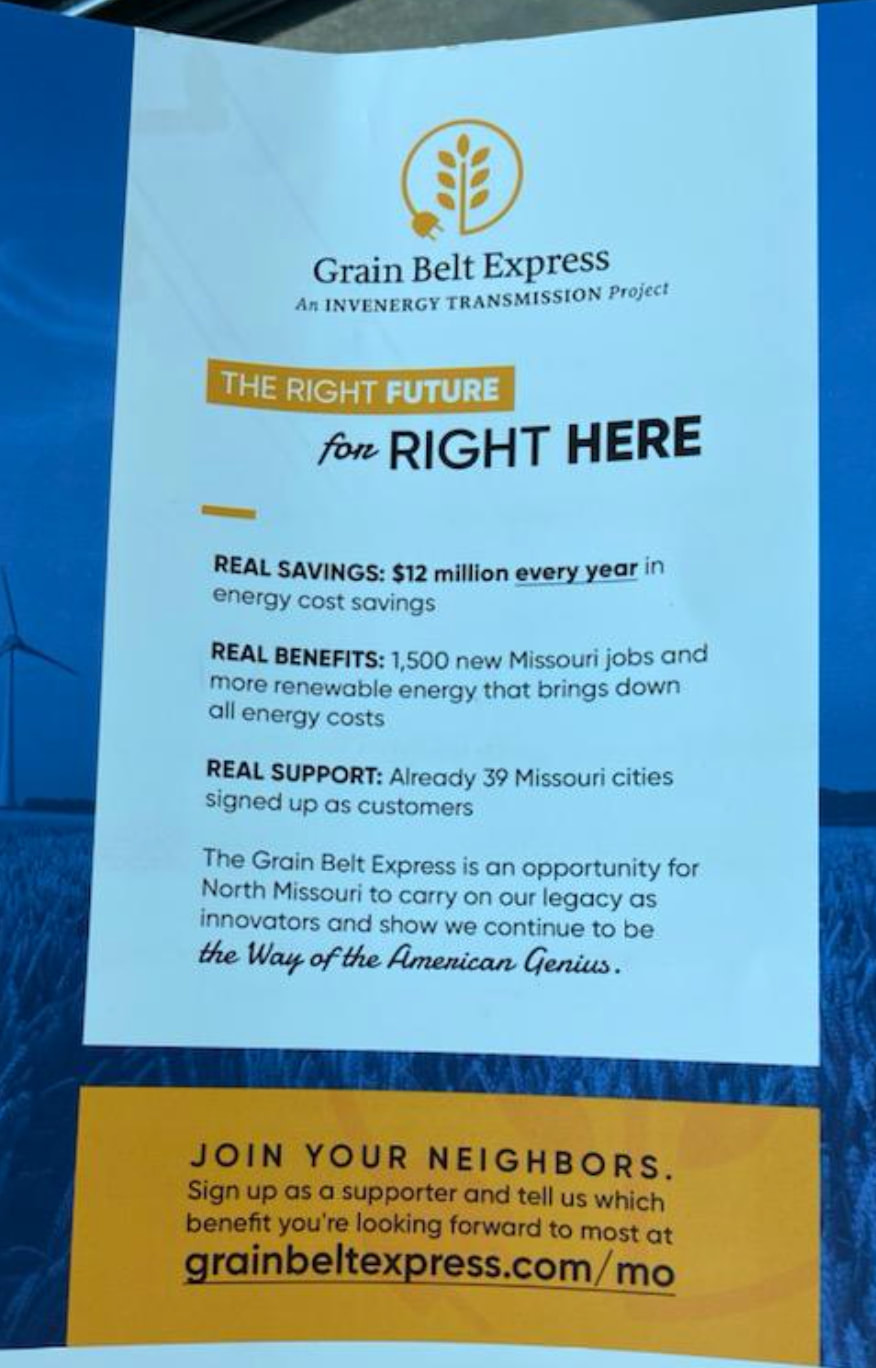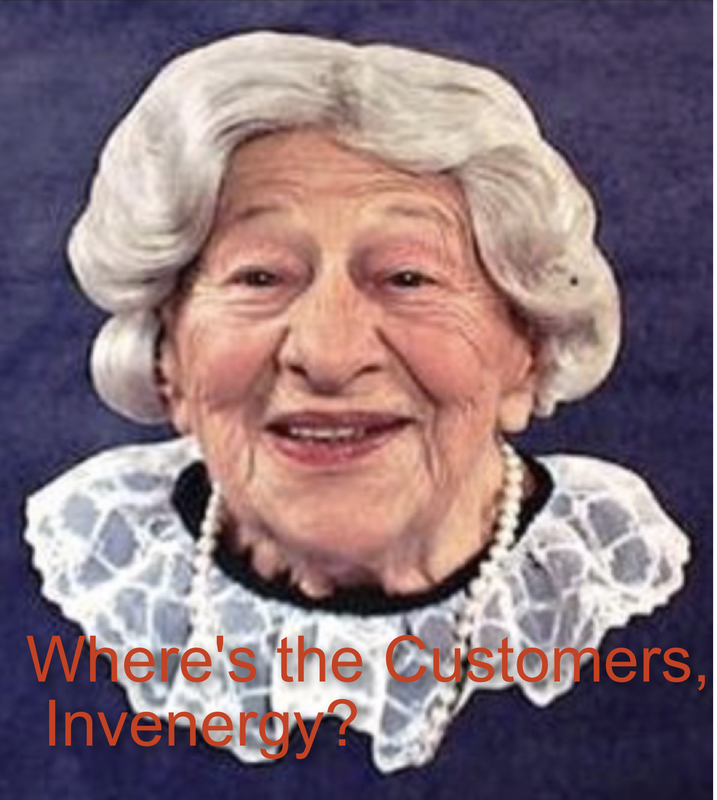Let's look at the second issue first. Congress amended Section 216(a) of the Federal Power Act (16 U.S.C. 824p) to give the Federal Energy Regulatory Commission authority to issue a permit for a transmission project for which a state "has denied an application seeking approval pursuant to applicable law." See the law that was amended here. See the amendments to the law here in Section 40105.
But there's a whole bunch more to it that's going to practically guarantee more than a decade of process and court battles.
In order for FERC to exercise its newfound authority, the transmission project must be sited in a National Interest Electric Transmission Corridor (NIETC). These corridors may be designated by the U.S. Department of Energy after it performs a "study of electric transmission congestion." The law was amended to add that "the designation would enhance the ability of facilities that generate or transmit firm or intermittent energy to connect to the electric grid." Looks like it's not limited to renewables, although why should we designate corridors that would take private property to transmit "intermittent energy"? Only if we want our electricity to work "intermittently"? Also, "the designation would result in a reduction in the cost to purchase electric energy for consumers." Must result in cheaper energy. Renewables, with all costs included, are not cheaper. But never fear, our heroes in Congress have included a protective guardrail for landowners whose private property would be taken by a new FERC permit... "...in the determination of the Commission, the permit holder has made good faith efforts to engage with landowners and other stakeholders early in the applicable permitting process..." There, that solves everything. As long as transmission company land agents begin pestering you with incessant phone calls and by showing up at your property unannounced at their own whim early in the process, you're protected. This is just so much undefined garbage that it does absolutely nothing to protect landowners.
However, the congestion study and NIETC designation would take years to accomplish at DOE, where well-fed bureaucrats stumble lackadaisically through their work days. And then guess what? Any designation is a federal action that requires an Environmental Impact Study under NEPA. That can take perhaps 5 years... because bureaucrats, you know. After that, it's a surety that any corridor designation would be challenged in federal court. Add at least one year, possibly two. Also, these DOE congestion studies are only performed every 3 years (although DOE has never delivered like there is any deadline whatsoever). The last one was performed in 2020. It remains to be seen whether shifting political winds will cue up another study before the three-year deadline is up. It also requires that, in order for FERC to "permit" a transmission project, the project must first go through a state permitting proceeding and be denied. That will take another year or more.
So, let's put this on a timeline: 2023 - congestion study. Perhaps a designation a year later, after "consulting" with states and Indian tribes - 2024. Add EIS - 2029. Add court challenges - 2031. Meanwhile, the transmission project must first seek state approval. It remains to be seen whether this will occur before or after they try to establish a corridor. Most likely, the corridor designation will precede state application because what good is having FERC backstop authority if you can't threaten state utility commissions with losing jurisdiction if they deny? So, let's add another year for state permitting, and then how many years do you think it may take FERC to site and permit if it decides to use its new authority? I'm going to estimate at least three, because first FERC has to come up with regulations for its permitting process, which means a rulemaking and then possible court challenge on the rulemaking. And even if it manages to jump all these hurdles, FERC's permit and siting can still be, once again, appealed in federal court. Add another year. I think we're up to like 2036 now, but who's counting? Yup, this is REALLY going to help with immediate building of transmission for renewables. You morons! You've tied yourself up with new layers of Big Government process that's going to take at least 15 years to untangle. This is going to be a colossal waste of time and resources.
And then let's get down to basics... is this move to usurp state authority to site and permit new transmission even Constitutional? The Tenth Amendment to the Constitution provides that the “Powers not delegated to the United States by the Constitution, nor prohibited to it by the States, are reserved to the States respectively, or to the people.” Can the federal government simply mandate a takeover of state power to site and permit electric transmission like that? This is going to be an interesting slog through the federal court system.
Think that new law is stupid? You ain't seen nothing yet! Congress also added a new section creating a "Transmission Facilitation Program." (See Section 40106 of the new law linked above). In a nutshell, this is a federal effort to use our tax dollars to build transmission roads to nowhere. Lots of our tax dollars!
This new provision establishes a "fund" of $2.5 Billion for the Secretary of Energy to "enter into a capacity contract with respect to an eligible project prior to the date on which the eligible project is completed." What's a capacity contract? It's a contract to purchase capacity (use) of a new transmission project. A merchant transmission project is a market-based project. Although there is no regulated "need" for new transmission, an investor may propose to build one at his own expense with the hope of selling capacity to a voluntary market. If there are no volunteers to buy the capacity, then there is no market need for the transmission project and no one will use it. In that instance, the project is not built and the investor eats the cost of his own failure to attract market interest. However, this stupid new law props up unneeded projects using your tax dollars! If a proposed merchant project cannot attract any voluntary customers to pay for and use its project, then the federal government could buy the capacity, even though it is not going to use it. Because the federal government is underwriting this private profit project with your tax dollars, the merchant can go ahead and build, even though it has no customers of its own.
A transmission road to nowhere with no customers, paid for by you. We're going to build unneeded electric transmission across your property using eminent domain, and then let it sit there and rot because nobody is using it. Have we reached the pinnacle of stupidity yet?
Oh, but wait, the federal government has a solution... it can only "enter into capacity contracts that will encourage other entities to enter into contracts for the transmission capacity of the eligible project... for not more than 50 percent of the total proposed transmission capacity of the applicable eligible project." So, it's sort of like painting Tom Sawyer's fence. The federal government thinks that if it underwrites the cost of a transmission project that nobody wants to use or pay for, that will somehow "encourage" those customer to change their mind? If it wasn't economically attractive in the first instance before the government stepped in and added a bunch of additional costs and interest to the cost of capacity, it certainly won't be attractive to customers at an increased price. Did these folks fail elementary school math? A transmission project that did not attract any customers when it was first offered it not going to magically attract interest after the Secretary of Energy starts painting Tom Sawyer's fence using your tax dollars.
So, what's going to happen when the customers aren't "encouraged?" The federal government will continue to prop up the transmission road to nowhere that nobody uses "for a term of not more than 40 years".
How much of our money might the Secretary pay for this capacity that it isn't going to use?
the fair market value for the use of the transmission capacity, as determined by the Secretary, taking into account, as the Secretary determines to be necessary, the comparable value for the use of the transmission capacity of other electric power transmission lines; and (B) on a schedule and in such divided amounts, which may be a single amount, that the Secretary determines are likely to facilitate construction of the eligible project, taking into account standard industry practice and factors specific to each applicant, including, as applicable-- (i) potential review by a State regulatory entity of the revenue requirement of an electric utility; and (ii) the financial model of an independent transmission developer.
There must be a need for every transmission project. We can't just build them because we think they're pretty, or they provide jobs, or maybe someone might want to use them someday. Need is determined either by a regional planning organization or a market need for the project demonstrated by signed capacity contracts. The federal government can't create a "need" by signing fake contracts for capacity that may never be used.
This craziness tap dances all over the current rate model of merchant transmission. FERC may grant a merchant transmission project the authority to negotiate rates with voluntary customers in order to pay for its project. The negotiation process must be fair and is subject to regulatory scrutiny. In addition, there may be no captive customers for a negotiated rate project. All participation is voluntary. When the federal government starts signing capacity contracts without any market competition that would serve to keep contract prices at fair market value, it is no longer a market-based process. In addition, when the federal government starts trying to resell unwanted capacity it has purchased, it would have to meet the same scrutiny as the original project owner. Not sure that can even happen without a whole bunch of new rules. FERC is going to have to have a huge, regulatory reckoning with its negotiated rate authority process and precedent before any of this nonsense happens. So, another time consuming, money-wasting dead end.
Also, a state may deny to approve a government-funded merchant project. Then they'd have to go back to square one designating a NIETC corridor. Round and round the regulatory revolving door they go!
Never let advocacy groups make new laws. They're not smart enough not to harm themselves and others.
The only drawback here is that fighting all these battles is also going to be time-consuming and expensive for affected landowners. But we never give up! Game on!








 RSS Feed
RSS Feed